Honorary Keynote
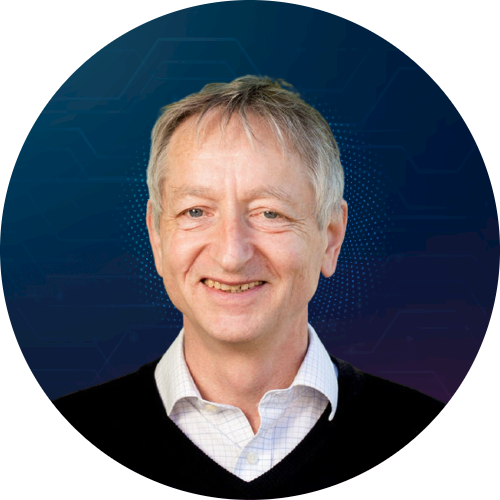
Prof. Geoffrey Hinton
A.M. Turing Award
University of Toronto, Canada
Geoffrey Hinton received his PhD in Artificial Intelligence from
Edinburgh in 1978. After five years as a faculty member at
Carnegie-Mellon he became a fellow of the Canadian Institute for
Advanced Research and moved to the Department of Computer Science at
the University of Toronto where he is now an emeritus professor. He is
also a VP Engineering fellow at Google and Chief Scientific Adviser at
the Vector Institute.
Geoffrey Hinton was one of the researchers who introduced the backpropagation
algorithm and the first to use backpropagation for learning word embeddings. His
other contributions to neural network research include Boltzmann machines,
distributed representations, time-delay neural nets, mixtures of experts,
variational learning and deep learning. His research group in Toronto made
major breakthroughs in deep learning that revolutionized speech recognition and
object classification.
Geoffrey Hinton is a fellow of the UK Royal Society and a foreign
member of the US National Academy of Engineering and the American
Academy of Arts and Sciences. His awards include the David
E. Rumelhart prize, the IJCAI award for research excellence, the
Killam prize for Engineering, the IEEE Frank Rosenblatt medal,
the NSERC Herzberg Gold Medal, the IEEE James Clerk Maxwell Gold
medal, the NEC C&C award, the BBVA award, the Honda Prize and the Turing Award.

Prof. Geoffrey Hinton
A.M. Turing Award
University of Toronto, Canada
Learning Deep Neural Networks without Propagating Derivatives
Keynotes
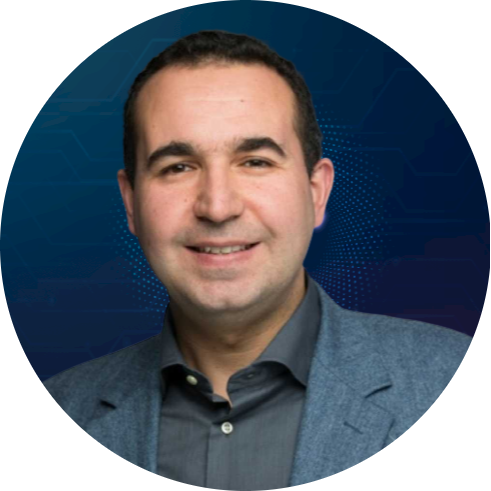
Prof. Abdelaziz Berrado
Mohammed V University in Rabat, Morocco
Abdelaziz BERRADO is Professor of Industrial Engineering in EMI School of Engineering at Mohammed V University in Rabat. Prior to his current position, he was a faculty member of Engineering at Al Akhawayn University in Ifrane. He holds a Ph.D. in Decision Systems and Industrial Engineering from Arizona State University.
He researches advanced analytical methods and frameworks for knowledge generation and decision support in organizations. He focuses on data analytics for addressing societal challenges and also for Operations and Supply Chain Modelling, Planning, improvement and Control with applications in Healthcare, Education and other Industries. He has led several funded applied research projects with local and international impact and published research papers in renowned journals.
In addition to academic work, he interacts closely with the industry. Previously, he was a senior engineer and data analytics lead at Intel.
He is a fellow of IEOM society and a member of INFORMS and IEEE.

Dr. Bouchra Bouqata
Microsoft Azure Research, USA
Dr. Bouqata is a Principal Machine Learning and AI Scientist at Microsoft Azure Research, where she leads several programs in the area of large-scale automated-intelligent Machine Learning and AI systems solutions focused in the areas of Prognostics and Health Management, Monitoring and Diagnostics of complex systems in AIOPS for Microsoft 365core and Microsoft Azure. Dr. Bouqata was a Senior Machine Learning and AI Scientist and Program Manager at Amazon Robotics Research where she led programs in the area of automated-intelligent systems based on Computer Vision and Machine Learning solutions emphasizing on solving business problems for automated robotics enabled Fulfillment Network for Amazon such as automatically identify/localize packages and identify damages to be automatically inducted by a robotic arm. She is also working on AI for AI research for data generation and augmentation using Generative Adversarial Deep Learning Networks. Previously, Dr. Bouqata was senior Analytics Product Manager at GE Renewable Energy and Senior Scientist in the Machine Learning lab at GE Global Research. She led several programs in the area of large-scale automated-intelligent Machine Learning and AI systems solutions focused in the areas of Prognostics and Health Management, Monitoring and Diagnostics of complex assets (such as Wind turbines, Jet Engines, Gas Turbines) and led several Government Agencies (DARPA and IARPA) programs in AI and Cognitive AI agents. Dr. Bouqata received her Ph.D. in Machine Learning and Artificial Intelligence from Rensselaer Polytechnic Institute. She received several fellowships and awards including MRE Academy Morocco, BEYA and YCWA REACH awards for outstanding achievements and Amazon and GE's inclusiveness award for outstanding leadership and Research. Dr. Bouqata has co-authored several conference and journal publications and holds multiple patents in the areas of Machine Learning, Automation, Robotics, Asset Prognostics and Health Management and Asset Monitoring and Diagnostics. She has organized successful panels and workshops and served as chair and invited speaker in different technical conferences such as MLADS, AMLC, NREL, ICCBR, NIPS, Big Data, Wind O&M, GHC and NYCWiC. Dr. Bouqata is an active member of IEEE, AAAI, ACM and SWE. As a woman in technology, Dr. Bouqata is passionate about attracting, promoting and retaining women in Computing. She is part of the leadership committee of Grace Hopper Conference for Women in Computing (GHC), Amazon Women Engineers (AWE), Amazon Women in Science (AWiS), and Arab Women in Computing (ArabWiC). Bouchra is actively mentoring other women in technology to navigate and advance their careers and achieve work/life balance.
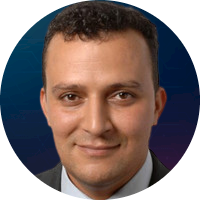
Dr. Hicham Zmarrou
Microsoft, Netherlands
Dr. Hicham Zmarrou is a Lead Architect Data & AI at Microsoft. He is responsible for accompanying companies in their cloud Data & AI journey, helping them to formulate their Data & AI strategies, design operating models to execute these strategies and supervise operational teams in their day to day execution. Hicham earned a PhD in mathematics from the University of Amsterdam and a "Licence de Mathématiques" from Mohammed V University in Rabat.

Prof. Malik Ghallab
LAAS - CNRS, France
Prof. Malik Ghallab is an Emeritus Director of Research at LAAS, CNRS. His research activity is focused on AI and Robotics. He contributed to topics such as object recognition and pattern matching, scene interpretation, heuristics search, unification algorithms, knowledge compiling, temporal reasoning, task planning, monitoring, and learning of skills and models of behaviors. He (co-)authored over 200 technical articles in journals and conference proceedings, and several textbooks and monographies. He taught AI at several universities in France, and abroad as visiting professor. He advised 32 PhDs. Malik Ghallab was director of the earliest AI research program in France (PRC-GDR IA, 1989-1996), director of Robea, a national research program in Robotics (2000-2006), director of LAAS-CNRS (2003-2007), and CTO of INRIA (2007-2010). He currently chairs the Steering Committee of ANITI, the AI interdisciplinary institute of Toulouse, France. His is involved in several initiatives regarding socially responsible research in AI and computational sciences. He is EurAI Fellow, Docteur Honoris Causa of the University of Linköping, Sweden, Member of the Hassan II Academy of Science and Technology of Morocco, and Chevalier de la Légion d’Honneur.
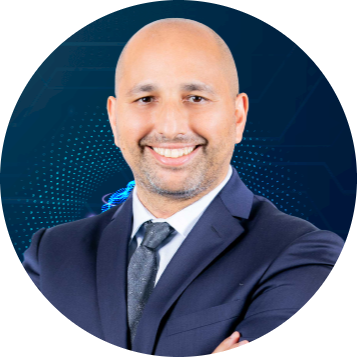
Prof. Merouane Debbah
Technology Innovation Institute, United Arab Emirates
Prof. Merouane Debbah is Chief Researcher at the Technology Innovation Institute in Abu Dhabi. He is a Professor at Centralesupelec (France) and an Adjunct Professor with the Department of Machine Learning at the Mohamed Bin Zayed University of Artificial Intelligence in Abu Dhabi. He received the M.Sc. and Ph.D. degrees from the Ecole Normale Supérieure Paris-Saclay, France. He was with Motorola Labs, Saclay, France, from 1999 to 2002, and then with the Vienna Research Center for Telecommunications, Vienna, Austria, until 2003. From 2003 to 2007, he was an Assistant Professor with the Mobile Communications Department, Institut Eurecom, Sophia Antipolis, France. In 2007, he was appointed Full Professor at CentraleSupelec, Gif-sur-Yvette, France. From 2007 to 2014, he was the Director of the Alcatel-Lucent Chair on Flexible Radio. From 2014 to 2021, he was Vice-President of the Huawei France Research Center. He was jointly the director of the Mathematical and Algorithmic Sciences Lab as well as the director of the Lagrange Mathematical and Computing Research Center. Since 2021, he is leading the AI & Digital Science Research centers at the Technology Innovation Institute. He has managed 8 EU projects and more than 24 national and international projects. His research interests lie in fundamental mathematics, algorithms, statistics, information, and communication sciences research. He holds more than 40 patents. He is an IEEE Fellow, a WWRF Fellow, a Eurasip Fellow, an AAIA Fellow, an Institut Louis Bachelier Fellow and a Membre emerite SEE. He was a recipient of the ERC Grant MORE (Advanced Mathematical Tools for Complex Network Engineering) from 2012 to 2017. He received more than 25 best paper awards, and he is an Associate Editor-in-chief of the journal Random Matrix: Theory and Applications.

Dr. Priya L. Donti
Climate Change AI, USA
Co-founder and Executive Director of Climate Change AI (CCAI), a global non-profit initiative to catalyze impactful work at the intersection of climate change and machine learning. Dr. Priya Donti will join MIT EECS as an Assistant Professor in Fall 2023. Her research focuses on machine learning for forecasting, optimization, and control in high-renewables power grids. Specifically, her work explores methods to incorporate the physics and hard constraints associated with electric power systems into deep learning workflows. Dr. Priya Donti is a recipient of the MIT Technology Review's 2021 “35 Innovators Under 35” award. She was previously a U.S. Department of Energy Computational Science Graduate Fellow, a Siebel Scholar, an NSF Graduate Research Fellow, and a Thomas J. Watson Fellow. She received her Ph.D. from the Computer Science Department and the Department of Engineering & Public Policy at Carnegie Mellon University, co-advised by Zico Kolter and Inês Azevedo.
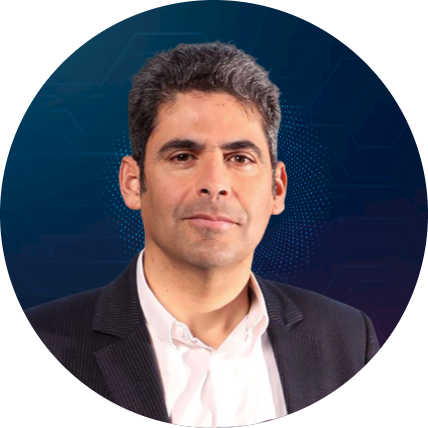
Prof. Rachid Guerraoui
EPFL, Switzerland
Rachid Guerraoui is a professor in computer science at EPFL where he leads the Laboratory of Distributed Computing. He worked in the past with Ecole des Mines de Paris, CEA Saclay, HP Labs in Palo Alto and MIT. He has been elected ACM fellow and professor of the College de France. He was awarded a Senior ERC Grant and a Google Focused Award.
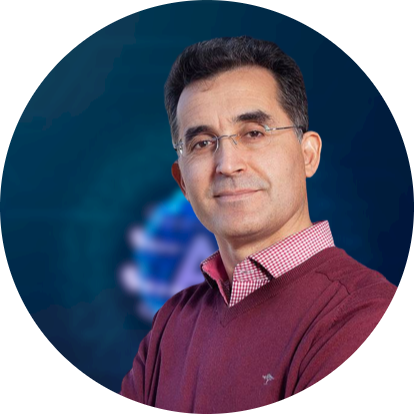
Prof. Said Hamdioui
TU Delft - Cognitive IC, Netherlands
Prof. Said Hamdioui is currently Chair Professor on Dependable and Emerging Computer Technologies and Head of the Computer Engineering Laboratory (CE-Lab) of the Delft University of Technology, the Netherlands. He received the MSEE and PhD degrees (both with honors) from TUDelft. Prior to joining TUDelft as a professor, Hamdioui worked for Intel (Califorina, USA), Philips Semiconductors R&D (Crolles, France) and Philips/ NXP Semiconductors (Nijmegen, The Netherlands). His research focuses on two domains: Dependable CMOS nano-computing (including Reliability, Testability, Hardware Security) and emerging technologies and computing paradigms (including 3D stacked ICs, memristors for logic and storage, and in-memory-computing). Hamdioui owns two patents, has published one book and contributed to other two, and had co-authored over 250 conference and journal papers. He has consulted for many worldwide semiconductor companies in the area of chip testing. Hamdioui is a Senior member of the IEEE, was Associate Editor of many journals and sill serves on the editorial board of IEEE Design & Test, and ACM Journal on Emerging Technologies in Computing Systems (JETC). Hamdioui is the recipient of many international/national awards. E.g., he is the recipient Best Tech Idea Award of The Netherlands in 2021, the European Commission Components and Systems Innovation Award for most innovative H2020 project, the 2015 HiPEAC Technology Transfer Award, European Design Automation Association Outstanding Dissertation Award 2003, etc. He received many Best Paper Awards and nominations at leading international conferences.

Prof. Abdelaziz Berrado
Mohammed V University in Rabat, Morocco
Managing System's Performance in the Age of AI: An Industrial Engineering Perspective
The challenges faced by industrial engineers when dealing with performance issues in complex environments, led to the integration of AI in general and machine learning in particular for addressing societal challenges and improving decision making. In this talk, we illustrate through different applied research projects conducted in Moroccan settings across different industries, businesses, and disciplines, existing opportunities and challenges at the interface between and IE and AI.

Dr. Bouchra Bouqata
Microsoft Azure Research, USA
Unleashing the Power of Deep Learning for Robotics Trends and Challenges
The recent rapid progress of deep learning algorithms in generating realistic images, especially in Generative Adversarial Networks (GAN) and Variational Auto-Encoders (VAE), has helped advance new applications. Examples of such applications range from generating and manipulating new synthetic data for self-driving cars, to building/urban architectures, to interior design, and gaming. Furthermore, several applications have benefited from deep learning generative advancement, such as robotics manipulations in structured and unstructured environments, virtual fashion clothes try-on, and item identification on the go. Real-life testing of robotic systems is expensive and slow. A fundamental challenge of applying deep supervised learning and deep reinforcement learning to several applications such as robotics and self-driving cars is data availability and real-world data is difficult to collect. In fact, state-of-the-art deep learning algorithms are data-hungry and need millions to tens of millions of labeled examples with variety in it for each application domain. However, obtaining labeled real-world data for robotics or self-driving cars, is challenging because robots and autonomous cars are expensive, 3-dimensional data can be particularly difficult to label, and collecting data with robotic systems or autonomous vehicles can be dangerous and might not be possible as the underlying algorithms have to reach a certain level of accuracy to be deployed in the wild for data collection. This talk will focus on robotics applications and the use of AI for AI and on how Deep learning algorithms such as GAN are leveraged. Additionally, we will discuss the Machine learning algorithms lifecycle at scale.

Dr. Hicham Zmarrou
Microsoft, Netherlands
To succeed with Enterprise AI, first build the 'Bridge'
Much has been written about the high failure rate of AI projects. AI teams in different organizations often have difficulty moving their insights and algorithms into business processes. At the same time, business teams often can't articulate the problems they need to be solved. And they ignore their cultural resistance to AI innovations. There is a designed-in structural tension between business and AI teams that needs to be recognized and addressed. Structural problems demand structural solutions, and we see a way forward through an AI bridge: an organizational structure and leadership commitment to develop better communication, processes, and trust among all stakeholders. In this presentation we will introduce you to the corporate AI bridge, its role and its major responsibilities.

Prof. Malik Ghallab
LAAS - CNRS, France
Ingredients for a National R&D Strategy in AI
During the last decades, AI has moved from the circles of scholarly academic interests to the limelight of media and political concerns, a two sided a fate for a scientific field which brings support as well as risks. Most OECD and many other countries established national plans for AI with significant public and private funding. The establishment of such a plan (which might be under consideration for Morocco) requires analyzing and responding to the following questions:
- Why such a plan is initiated ? what are its intended objectives and how possible progress towards these objectives might be measured ?
- What are the components of the plan? which tasks and actions will it deploy ?
- Who is concerned and what are the actors of the plan ? who will be acting in which task, who will be steering and who will be evaluating ?
- How will the plan be implemented ? how much efforts will be invested and from which sources ? how the tasks and actions are organized and coordinated ?

Prof. Merouane Debbah
Technology Innovation Institute, UAE
Mobile AI: Challenges and Opportunities
Fueled by the availability of more data and computing power, recent breakthroughs in cloud-based machine learning (ML) have transformed every aspect of our lives from face recognition and medical diagnosis to natural language processing. However, classical ML exerts severe demands in terms of energy, memory and computing resources, limiting their adoption for resource constrained edge devices. The new breed of intelligent devices requires a novel paradigm change calling for distributed, low-latency and reliable ML at the wireless network edge. This talk will explore the potential of the Mobile AI paradigm to unlock the full potential of 5G and beyond.

Dr. Priya L. Donti
Climate Change AI, USA
Tackling Climate Change with Machine Learning
Climate change is one of the greatest challenges that society faces today, requiring rapid action from all corners. In this talk, I will describe how machine learning can be a potentially powerful tool for addressing climate change, when applied in coordination with policy, engineering, and other areas of action. From energy to agriculture to disaster response, I will describe high impact problems where machine learning can help through avenues such as distilling decision-relevant information, optimizing complex systems, and accelerating scientific experimentation. I will also discuss key considerations for the responsible development and deployment of such work.

Prof. Rachid Guerraoui
EPFL, Switzerland
Artificial Intelligence: let's be serious
This talk will discuss the evolution of Artificial Intelligence, highlighting some confusions and open challenges.

Prof. Said Hamdioui
TU Delft - Cognitive IC, Netherlands
Computation-in-Memory for Edge AI: Opportunities and Challenges
Evolving IoT applications are extremely demanding in terms of storage, energy efficiency as well as intelligence.
Today's computer architectures fail to meet these requirements due to e.g., memory-processor data transfer bottleneck.
Hence, alternative computing architectures are being explored in the light of emerging new device technologies.
This talk provides a broad overview of emerging non-volatile devices based computation-in-memory (CIM) architectures for edge AI,
gives their potential in enabling smart local energy efficient computing, and highlights the major challenges ahead.
The talk first briefly addresses the need of new computing paradigm with energy efficiency of order of fJ/operation to enable zillions of e.g.,
edge applications, and shows the limitations of both CMOS scaling and today's computing architectures.
Then it classifies the sate-of-the art computer architectures and highlight how the trends is going toward
computation-in-memory (CIM) architectures in order to eliminated and/or significantly reduces the limitations of today's technologies.
The concept of CIM based is discussed and logic and arithmetic circuit designs using such devices and how they enable such architectures are covered.
The strong dependency of application domains on the selection of appropriate CIM architecture and its building blocks,
as well as the huge potential of CIM (in realizing order of magnitude improvement in terms of energy efficiency)
are illustrated based on some case studies. Future CIM challenges including architectures, design, test, and reliability are highlighted.
